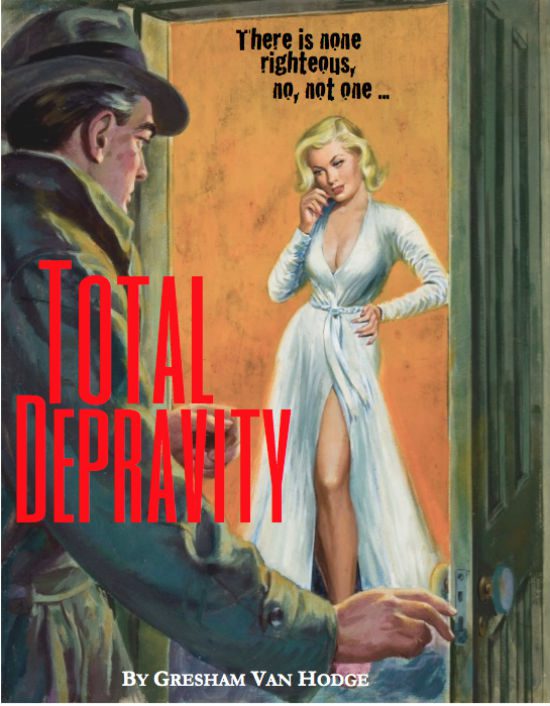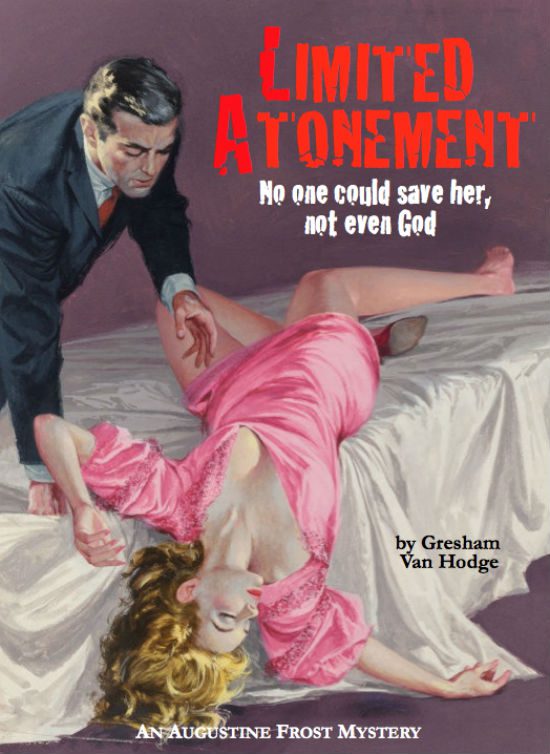We recently discussed podcaster and [white-]Christian-nationalist pastor Joel Webbon’s bizarre views here, borrowing this summary from Kyle Mantyla:
Webbon is an ardent Christian nationalist who believes that the American people are too degenerate, stupid, and cowardly to abide by the Constitution and therefore must be governed by a Christian dictator who “just rules with an iron fist” and forces everyone to, at the very least, “pretend to be Christian.” Under this Christian leader, Webbon says, the Constitution will be amended to include the Apostles’ Creed, abortion, pornography, no-fault divorce, in vitro fertilization, and birth control will all be outlawed, and women will be banned from voting.
On Monday’s podcast … Webbon and his guest, fellow Christian nationalist Adam Robles, discussed the need for the United States to be ruled by an “American Caesar” or “Protestant Franco.”
I mentioned in that post that Webbon’s church requires its members to commit to something called the “1689 Second London Baptist Confession of Faith,” an ultra-Calvinist declaration sparked by the insufficiently belligerent Calvinism of the 1644 London Confession.
 If that sounds like the narcissism of small differences exemplified in the classic Emo Phillips joke — “I said ‘Die heretic!’ and I pushed him off the bridge!” — that’s because that’s exactly what it is and exactly how it still functions today. It’s not an important theological statement in the Reformed/Calvinist tradition, but it still serves as a key signifier among micro-factions of white fundamentalists whose fundamentalism leans Calvinist and whose understanding of Reformed theology remains stuck in a time when Increase and Cotton Mather were among the foremost proponents of that tradition.
If that sounds like the narcissism of small differences exemplified in the classic Emo Phillips joke — “I said ‘Die heretic!’ and I pushed him off the bridge!” — that’s because that’s exactly what it is and exactly how it still functions today. It’s not an important theological statement in the Reformed/Calvinist tradition, but it still serves as a key signifier among micro-factions of white fundamentalists whose fundamentalism leans Calvinist and whose understanding of Reformed theology remains stuck in a time when Increase and Cotton Mather were among the foremost proponents of that tradition.
More importantly, Webbon’s dedication to 1689 explains why his soteriology is Reformed but his political theology is not.
Today, the Reformed tradition offers many rich streams of principled Christian political thinking, all of which draws upon or is built upon insights from Calvinist theology. But that wasn’t the case in the 1600s, or even in the 1700s. In those days, Calvinist political thinking was incoherent and, at best, useless. At worst, it was the kind of pseudo-Reformed dictatorial nonsense you’d come up with if you decided that Calvinist theology of human nature was true for everyone except for political leaders.
Take all that perceptively pessimistic Augustinian thinking about “total depravity” — the fallenness, fallibility, and finitude that Reformed theology says defines the human condition. Make that your view of the hoi polloi, the people, the citizenry. But exempt from this every monarch, prince, or “magistrate.” Treat the poor and the powerless with suspicion and hostility because they are sinful sinners prone to sin. But don’t worry about placing any checks on the powerful or subjecting them to any form of accountability because they’re ordained by God to rule over us sinners in His stead.
 That’s a formula for Very Bad Things. That’s how y0u get a Cromwell. Or a Joel Webbon — someone clamoring for “a Protestant Franco” and a “Christian dictator.”
That’s a formula for Very Bad Things. That’s how y0u get a Cromwell. Or a Joel Webbon — someone clamoring for “a Protestant Franco” and a “Christian dictator.”
We talked about this a few months ago — “Bootlicking Calvinism Is The Unfunny Kind Of Calvin + Hobbes.”
Again, Reformed political thinking as a whole is not still stuck in 1689. You got your Kuyperian Neo-Calvinists who understood that magistrates were not exempt from their Reformed understanding of human nature. You’ve got the complete works of Reinhold Niebuhr whose Pauline/Augustinian view of human nature led him to believe that no human should ever be trusted with unchecked power. But hyper-Calvinist white-/Christian-nationalists like Joel Webbon and Doug Wilson aren’t reading Kuyper or Dooyeweerd or Niebuhr.
And they’re not reading Calvin either, just venerating him. Which brings us to another danger from this gang.
These guys all subscribe to what I’ve sometimes called Calvinism-ism. Calvin believed the elect were saved entirely by divine grace. Calvinism-ists believe that the elect are saved by intellectually affirming the proposition that the elect are saved entirely by divine grace.
Salvation, in other words, is a matter of correct doctrine. They know correct doctrine. They’re certain of that — they have it written down right there in that Confession of 1689. And that gives them the right to shove heretics off the bridge.
They don’t quite say this explicitly, but it’s clearly what they believe. And because it’s what they believe, they can’t say it explicitly. They will always clearly state that salvation or “election” is solely a product of divine grace, uninfluenced by the deeds or doctrines of the select elect chosen by God as the passive recipients of that grace. Clearly stating that is the deed that they believe earns them their salvation by the work of intellectual affirmation.
So you won’t hear them say it, but you don’t need to hear them say it. These guys are obviously supremely confident in their status as the elect and they are just as obviously supremely confident in everyone else’s status as the depraved and the irredeemably damned. And that confidence invites them — maybe even impels them — to become monsters.
As I wrote here years ago in a post about Calvinist science fiction dystopias:
TULIP Calvinism … is only sustainable, I think, because our knowledge is incomplete and imperfect. Calvinists know that some few are among the elect, and that Jesus’ atonement is not for all/most. But Calvinists have no way of knowing, with certainty, who the elect might be.
If that knowledge were available — if it were obvious and certain — then Calvinism would not last another generation. It would collapse partly due to ethical incoherence and partly due to ethical horror. …
Some are loved by God, others are not. Some are God’s children, others are irredeemably damned. If we knew for certain who was who, then our ethics would be transformed — reshaped to align with the character of God that this scheme suggests. Ethics, in other words, would revert to something more like the ethnic cleansing of Jericho and Ai.
Or, at best, it would become a kind of Herrenvolk ethics, a two-tiered system involving rights/privileges for one group and not for the other. This is how guys like Webbon and Wilson view the world. They’ve managed to grasp enough Reformed theology to understand that other people are pervasively corrupted by sin, but haven’t managed to understand that this also applies to themselves.













